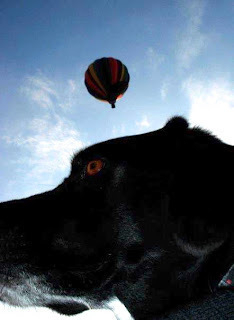Metalogicon
∞
That word incidentes bothered me, though, as did the genitive plural gigantium. Now, I am more of a Hellenist than a Latinist, so if you spot any errors in what I say here, I would be grateful for your corrections. Gigas is a loan word from Greek, which might explain the two different genitive plurals, Gigantum being correct, but Gigantium appearing to follow the rules. Incidentes just sounds funny, as though the dwarves had fallen upon the Giants - though it could indicate that the dwarves were fortunate enough to stumble upon the Giants; incido can have that meaning, after all. But another text I have found has insidentes, which makes more sense to me, meaning "sitting upon" or "standing upon."
As I said in my previous post, I am reluctant to take the responsibility for others' tattoos, but I have tentatively suggested that
Standing on the Shoulders of Giants
After writing my previous post about tattoos in ancient languages, a former student reminded me that I also helped her track down a Latin text she wanted to have inked. She
wanted to use the phrase found in one of Newton's letters to Hooke, "If I
have seen further it is by standing on the shoulders of giants." This
is a funny phrase, one that gets repeated a lot and that has a number of
variants. For example, Didacus Stella writes (In Luc. 10 tom. 2)
Pygmaei Gigantum humeris impositi plusquam ipsi gigantes vident
("Pygmies,
placed on the shoulders of Giants, see further than the Giants
themselves." See footnote 20 of Alexandre Koyré's "An Unpublished
Letter of Robert Hooke to Isaac Newton," Isis, Vol 43, No. 4 (Dec., 1952), pp312-33, U of Chicago Press.)
It's a funny phrase because it can be used both boastfully and self-deprecatingly. Newton, in his letter to Hooke, for instance, seems to boast that he sees farther than Hooke, but that he does so as a dwarf.
It also appears in Bernard of Chartres, quoted by John of Salisbury in his Metalogicon. One source I found has John saying this:
("Bernard of Chartres used to say that we are like dwarves, incidentes on the shoulders of giants, so that we might see more than they, and things further off...")Dicebat Bernardus Carnotensis nos esse quasi nanos, gigantium humeris incidentes, ut possimus plura eis et remotiora videre, non utique proprii visus acumine, aut eminentia corporis, sed quia in altum subvehimur et extollimur magnitudine gigantea. Et his facile acquieverim, quia artis praeparatitia et multos articulos veritatis tradunt artium praeceptores, etiam in introductionibus suis, aeque bene antiquis, et forte commodius.
That word incidentes bothered me, though, as did the genitive plural gigantium. Now, I am more of a Hellenist than a Latinist, so if you spot any errors in what I say here, I would be grateful for your corrections. Gigas is a loan word from Greek, which might explain the two different genitive plurals, Gigantum being correct, but Gigantium appearing to follow the rules. Incidentes just sounds funny, as though the dwarves had fallen upon the Giants - though it could indicate that the dwarves were fortunate enough to stumble upon the Giants; incido can have that meaning, after all. But another text I have found has insidentes, which makes more sense to me, meaning "sitting upon" or "standing upon."
As I said in my previous post, I am reluctant to take the responsibility for others' tattoos, but I have tentatively suggested that
NANI GIGANTUM HUMERIS INSIDENTESmight fit the bill for her, "Dwarves standing upon the shoulders of giants." If your Latin is better than mine, I welcome your corrections, especially before she makes this a permanent part of her skin.
</div>
∞
Worries Incompatible With Wisdom
Here is a thought-provoking perspective on the value and aims of studying the liberal arts. Imagine a university promoting itself in this way today, saying, in effect, "You should study the liberal arts, and most likely this will help you not to worry about the wrong things."
It may not be immediately obvious that there are cares that are "incompatible with wisdom," but it doesn't take too much reflection to see that there are certain kinds of worries that we really are unwise to cling to.
******
I don't think that "cares incompatible with wisdom" means "foolish cares." John is not simply being polite; he is also being compassionate, and acknowledging that we do not generally choose our troubles, and it can take training, and hard work, not to worry about them. Sometimes, worrying isn't even a choice, and we should be slow to damn those who worry uncontrollably.
“While there are many sorts of arts, the first to proffer their services to the natural abilities of those who philosophize are the liberal arts….The liberal arts are said to have become so efficacious among our ancestors, who studied them diligently, that they enabled them to comprehend everything they read, elevated their understanding to all things, and empowered them to cut through the knots of all problems possible of solution….They are called “liberal” either because the ancients took care to have their children [liberos] instructed in them; or because their object is to effect man’s liberation, so that, freed from cares, he may devote himself to wisdom. More often than not, they liberate us from cares incompatible with wisdom. They often even free us from worry about [material] necessities, so that the mind may have still greater liberty to apply itself to philosophy.”*
 |
| This is one of the things you don't need to worry about. |
*****
It may not be immediately obvious that there are cares that are "incompatible with wisdom," but it doesn't take too much reflection to see that there are certain kinds of worries that we really are unwise to cling to.
 |
| My dog worries about hot-air balloons. I do not know why, but that's okay. |
******
I don't think that "cares incompatible with wisdom" means "foolish cares." John is not simply being polite; he is also being compassionate, and acknowledging that we do not generally choose our troubles, and it can take training, and hard work, not to worry about them. Sometimes, worrying isn't even a choice, and we should be slow to damn those who worry uncontrollably.
*****
*John of Salisbury, The Metalogicon. Daniel D. McGarry, trans. (Philadelphia: Paul Dry Books, 2009) Book I, ch 12. P. 37.